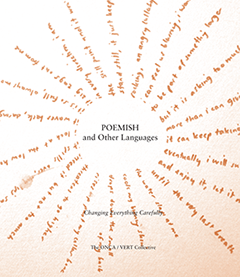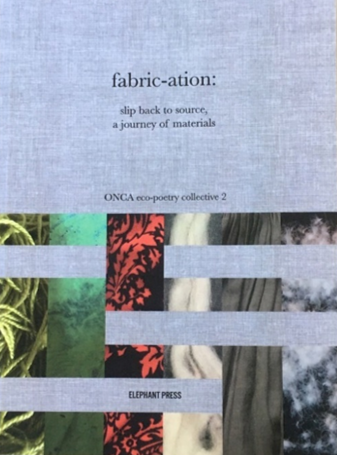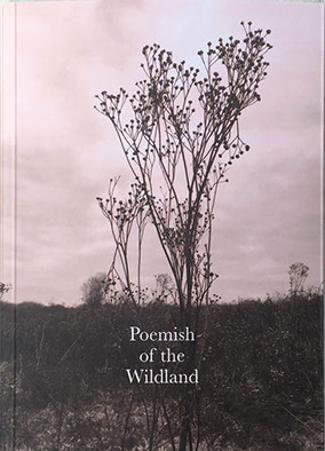See Kay’s blog for details the latest kin’d & kin’d eco-poetry courses.
kin’d & kin’d
In 2018, Kay Syrad and Clare Whistler* created the composite eco-poet kin’d & kin’d, who runs a series of eco-poetics courses called Changing Everything Carefully.** Inspired by Donna Haraway’s book Staying with the Trouble, in which she shifts the emphasis from the human to the other-than-human in our understanding of and attitude towards the world, the first workshops took place at environmental and social justice space, ONCA Gallery in Brighton https://onca.org.uk/, in partnership with Vert Institute (see Vert Institute page above). All of the workshops are ‘tentacular, object-body-connective, and five-sensical’. They are undertaken in the presence of natural objects and materials; they are tactile and collaborative, but they also bring to bear a broad range of nature and eco-writings: poetry, polemic, historical and contemporary information. Three of the courses have resulted in anthologies of participants’ writing; the first was Poemish & Other Languages (Elephant Press, 2019).

Testimonial – ‘Kay and Clare were wholly committed to igniting poemish alchemy from our wild language.Each week it was a joy to make spontaneous work to share and develop. […]A transformative and expansive experience.’
Another kin’d & kin’d course at ONCA in 2019, fabric-ation: slip back to source, a journey of materials, traced the return of six fabrics (silk, rubber, polyester, wool, linen and eider) from their human use back to their non-human source, encompassing the exploitation of human and animal labour.

A 6-week Changing Everything Carefully series also took place at Knepp Wildland in 2019 https://knepp.co.uk/home, the wilded estate near Horsham, West Sussex, the subject of Isabella Tree’s compelling book, Wilding (Picador, 2018). The course began with a Walking Safari led by one of Knepp’s expert ecologists, and participants worked inside and outside, becoming cognizant of how different it all is when (as at Knepp) animals and invertebrates manage the land. This time participants worked with traditional as well as experimental poetic forms; examples of both appear in the course anthology, Poemish of the Wildland (2019):

Testimonial – ‘Writing the natural world is usually a solitary calling, but among our feral band of sisters and brothers,the work emerged, as seed to sky; the soil that nurtured us was our kinship with each other.’
Anthologies available from Elephant Press: http://www.elephantpress.co.uk/
Further workshops took place at the Aldeburgh Poetry Festival 2019, where kin’d & kin’d read their first collaborative poem to be published, at the launch of Coast to Coast to Coast: 48 poets write at the coast, 2019.
*Collaborative artist Clare Whistler works as a dancer, choreographer and director and co-runs WaterWeek, an annual multi-faceted event. Clare’s website
**Changing Everything Carefully is a phrase that appears in e.e. cummings’ poem ‘Spring is like a perhaps hand’